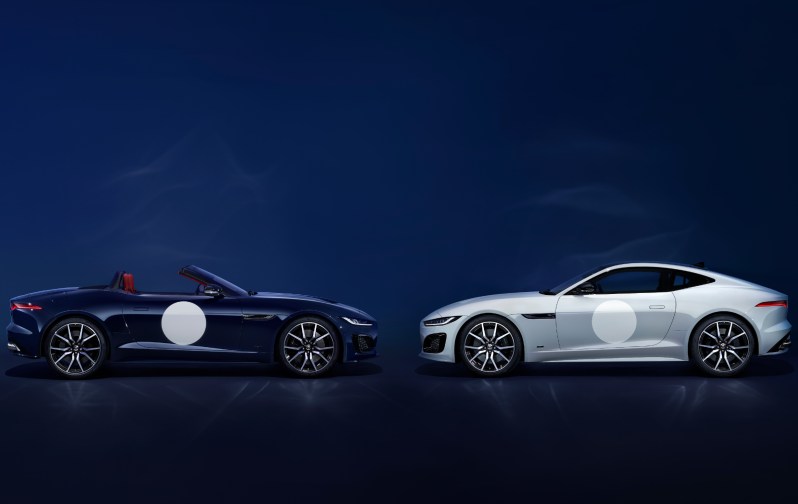
Jaguar, the famed British luxury sports car company, is joining other automakers in calling it quits with internal combustion engines (ICEs), shifting to an entirely EV luxury lineup brand by 2025. To commemorate its departure from 75-plus years of building gas-powered cars, Jaguar recently introduced the 2024 F-Type XP Edition, a limited-build of 150 vehicles.
It’s historically fitting that Jaguar chose the F-Type sports car for its last petrol-powered model. The F-Type is directly linked to Jag’s success on European racetracks in the 1950s with the D-Type racecar. The D-Type was the precursor to the widely coveted Jaguar E-Type street model. Jaguar produced the E-Type roadster and coupe from 1961 to 1974.
The E-Type was called the XKE in the U.S. A multi-paged, slick XKE model sales brochure I procured from the Jaguar car dealership in Hartford, Connecticut, in the late 1960s was a personal source of dreams and inspiration for years.
Jaguar launched the F-Type in 2013 as the spiritual successor to the E-Type after almost 40 years of building more significant, more luxurious sedans and convertibles. The V-8-powered F-Type demonstrated Jaguar’s continued commitment to gutsy sports cars.
All about the 2024 Jaguar F-Type ZP Edition
The 2024 Jaguar F-Type ZP Edition will be built to order starting in early 2024. The cars will have all-wheel drive, Jaguar’s Intelligent Driveline Dynamics (IDD) technology, and a 575-hp supercharged V8 engine that puts out 536 lb-ft of torque capable of hurling the F-Type from 0-60 mph in 3.5 seconds.
F-Type ZP Edition buyers can choose between two color combinations: Oulton Blue Gloss exterior with a Mars Red and Ebony leather interior or Crystal Grey Glass paint with Navy Blue and Ebony leather. As another reminder of their racecar roots, all ZP Editions will have hand-painted Porcelain White Gloss circles, called roundels, on their doors. Should you buy one of these sure-to-be-collector cars, adding racing numbers to the roundels is on you.
The commemorative F-Types will have Gloss Black exterior trim pieces and disc brake calipers. The cars also will sport F-Type ZP Edition branding on Gloss Black Diamond Turned 20-inch forged alloy wheels, the door tread plates, and the dashboard. Owners will also receive a plaque identifying the car by its number of 150.
Jaguar hasn’t been shy to adapt to market direction in the past decade, as demonstrated when it launched the 2017 Jaguar F-Pace SUV. Jaguar’s transition to an all-electric brand will be interesting, especially as it fully commits to the shift to Jaguar EVs sooner than most established car companies.
Pricing for the 2024 Jaguar F-Type ZP Edition is not available yet. The F-Type R75 roadster and coupe that the limited edition will be based on start at $115,000 and $113,000, respectively, so you can count on the ZP Edition starting considerably north of those prices. Collectors are likely jockeying for spots on the list. If you want this Jaguar, the time to start your campaign is now.


